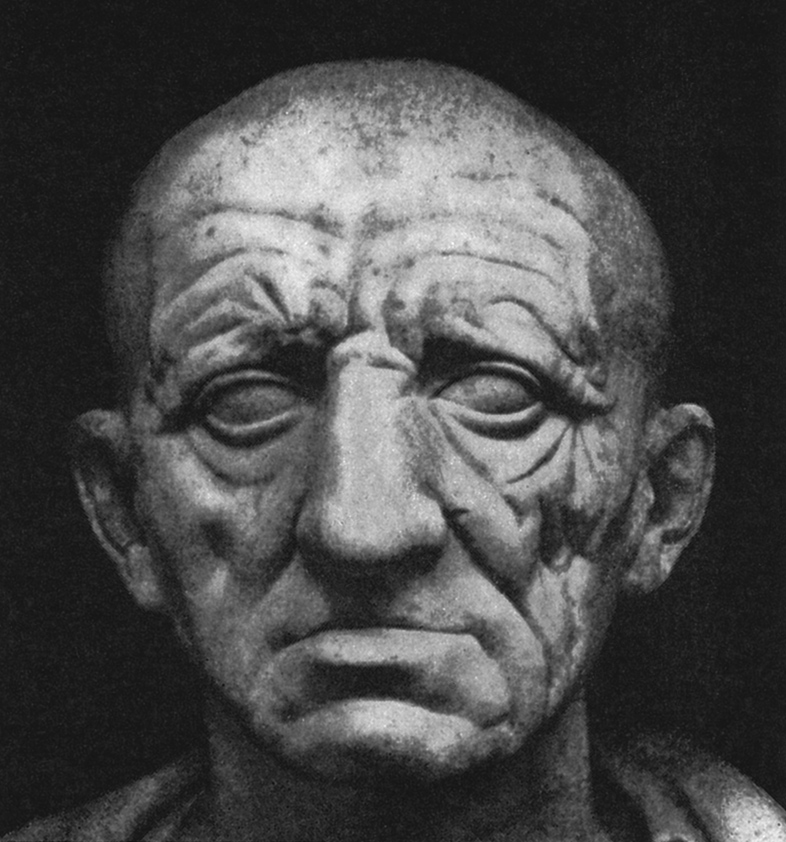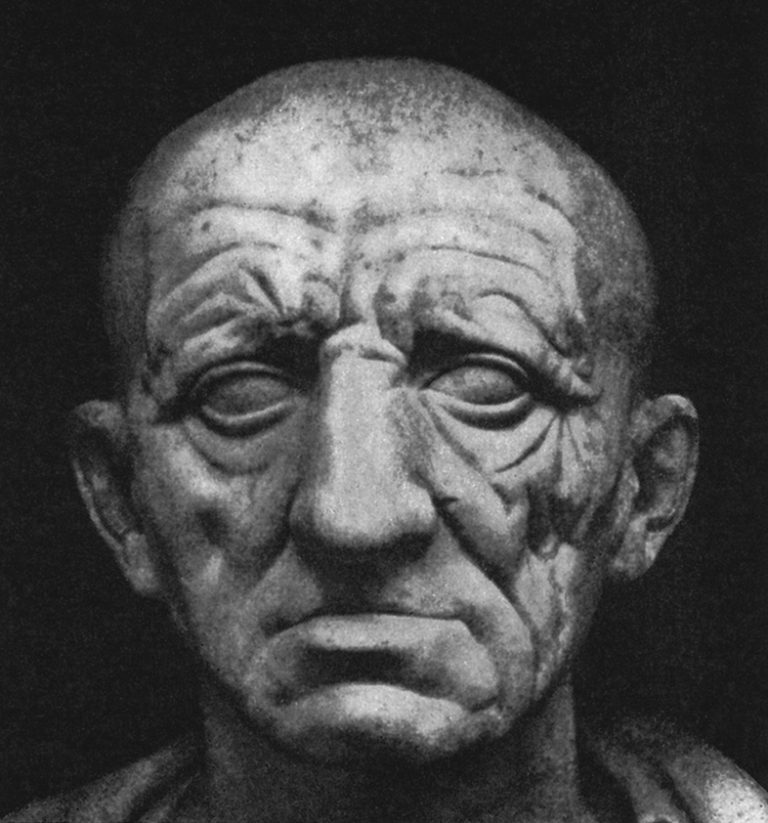
In the first objection against old age, Cato fights against the claim of old age as a period in our lives where things slow down and stagnate and argues there are alternative activities that are just as dignified if not even more.
“What kind of activities are we talking about? Don’t we mean the sort we engage in when young and strong? But surely there are activities suitable for older minds even when the body is weakened.”
Cato gives examples of a handful of famous elderly Romans such as Gaius Fabricius Luscinus, Manius Curius Dentatus and Tiberius Coruncanius. Who led active lives in serving their country and dispensing wisdom. Cato later hints that even his advocacy for the total destruction of Carthage is useful activity for society because the senate listened to him. Just because you’re no longer a soldier or an athlete does not mean you are no longer of any use to society; should you care about that in the first place anyway!
“People who say there are no useful activities for old age don’t know what they’re talking about. They are like those who say a pilot does nothing useful for sailing a ship because others climb the masts, run along the gangways, and work the pumps while he sits quietly in the stern holding the rudder. He may not be doing what the younger crewmen are doing, but what he does is much more important and valuable.”
This statement by Cato isn’t just about our loss of stamina and endurance in the effectiveness of performing tasks for ourselves, but addresses also our usefulness to others and society. Though our physical abilities may wane or even become infirm come old age, we can be at better service to ourselves or society if we cultivate our wisdom and character instead; just like the analogy of a blind man honing his other senses to which they become sharper as a result. Is wisdom and character greater in our old age? Cato gives room for optimism with vim in this:
“It’s not by strength or speed or swiftness of body that great deeds are done, but by wisdom, character, and sober judgements. These qualities are not lacking in old age but in fact grow richer as time passes”
He’s effectively saying that there is an inverse relationship between strength/speed/swiftness and wisdom/character/good judgment. As you grow older the former diminishes but the latter grows and expands. The reason being those who’ve grown to old age have had ample time to allocate for the accumulation of wisdom (good judgement included) and character development.
In the Early Roman republic, let’s not forget that the most important ruling body at the time was the senate, (the word comes from the Latin senex meaning ‘old man’) which was made up of an assembly of 300 elderly Roman noblemen. Cato argues if old Roman men did not possess the qualities of wisdom, reason and judgement then the senate as the ruling institution would have not been named just so.

Impulsivity is that of youth; but wisdom that of old age. Village elders are given positions of authority thanks to their experience and wisdom, because wisdom and sound judgements have been historically shown to be most represented in elderly men.
Memory, Knowledge and Experience
“Some people will say that memory fades away as the years pass. Of course it does if you don’t exercise it or aren’t very bright to begin with.”
Again it’s the character of the individual that’s emphasised here. I agree with the use it or lose it sentiment, but with some age related diseases it cannot be helped, for instance with Alzheimer’s disease. And to digress, Alzheimer’s disease and other neurological diseases disprove Epictetus’ claim that ‘a problem for the body is not a problem for the mind.’ For example, with the formation of beta amyloid plaques in the brain there results the degradation of neuronal synapses, characteristic of the beginning of Alzheimer’s disease. With the onset of these conditions the brain as part of the body does verily affect the mind with consequences to both the body and the mind.
Back on track, Cato draws examples from other prominent figures in history such as the ancient Athenian, Themistocles, who is said to have memorised the name of every citizen in all Athens. Cato says that old people remember the things which interest them and gives an amusing observation of never hearing ‘of an old man who forgot where he hid his money!’
We often pay special attention when the self is involved, because to have an interest is to be bound with a self. From whether that be when we find ourselves in dangerous situations, to our names being mentioned in conversation amidst a crowded room full of people. It is in our interest to memorise information pertaining to ourselves, for the information may help us be aware of future dangers, solve problems, advance our social standing or help preserve it and old age is no exception.
The major professions at the time were dominated by elders such as lawyers, priests, augurs and philosophers and ‘what a multitude of things they remember!’ exclaimed Cato! For they were knowledge heavy roles and required good memory to be competent in performing it!
“Clearly Sophocles was not deterred in his calling by old age, nor were Homer, Hesiod, Simonides, or Stesichorus… not to mention outstanding philosophers such as Pythagoras, Democritus, Plato, Xenocrates, or their successors Zeno, Cleanthes, or Diogenes the Stoic, whom you have both seen at Rome. Didn’t they actively pursue their work as long as they lived?”
Cato knew elderly friends and neighbours who continued working in the fields sowing reaping and storing crops. If you’d ask them ‘whom he is planting for’ he will always reply: “For the immortal gods, who have not only handed down to me these things from my ancestors but also determined that I should pass them on to my descendants”
All well and good, but what Cato neglects to explore in depth is experience as an addition to wisdom and character. Experience is what develops competence in skilled fields like lawyers, priests, augurs and philosophers. Wisdom is distilled experience come about by trial and our character can be developed through lived experiences.
While on the subject of memory here’s an excerpt from Plato’s student, Aristotle, in his work Rhetoric. Seems that Aristotle thought that old folks have a penchant for nostalgia:
“They live by memory rather than by hope; for what is left to them of life is but little as compared with the long past; and hope is of the future, memory of the past. This, again, is the cause of their loquacity; they are continually talking about the past; because they enjoy remembering it “
Far from being a state of affairs to which we take the back seat and be more and more idle. Old age can be a time when we’re very active, we can continue following the pursuits of our earlier years or take on new pursuits like learning something new. Cato himself was in the midst of learning Greek ‘like someone trying to satisfy a long thirst’ and Solon, the Athenian statesman and lawgiver, boasted in his old age that he was learning something new every day!

